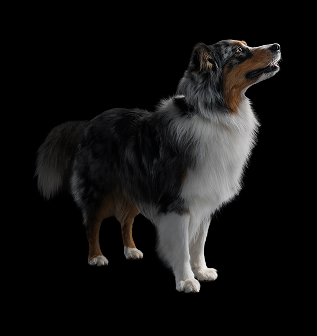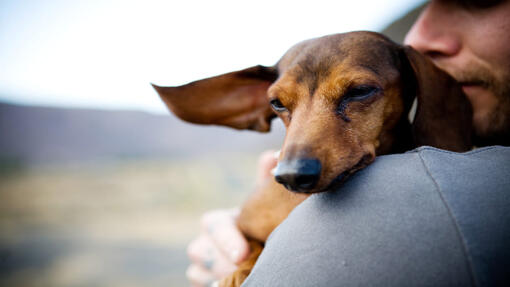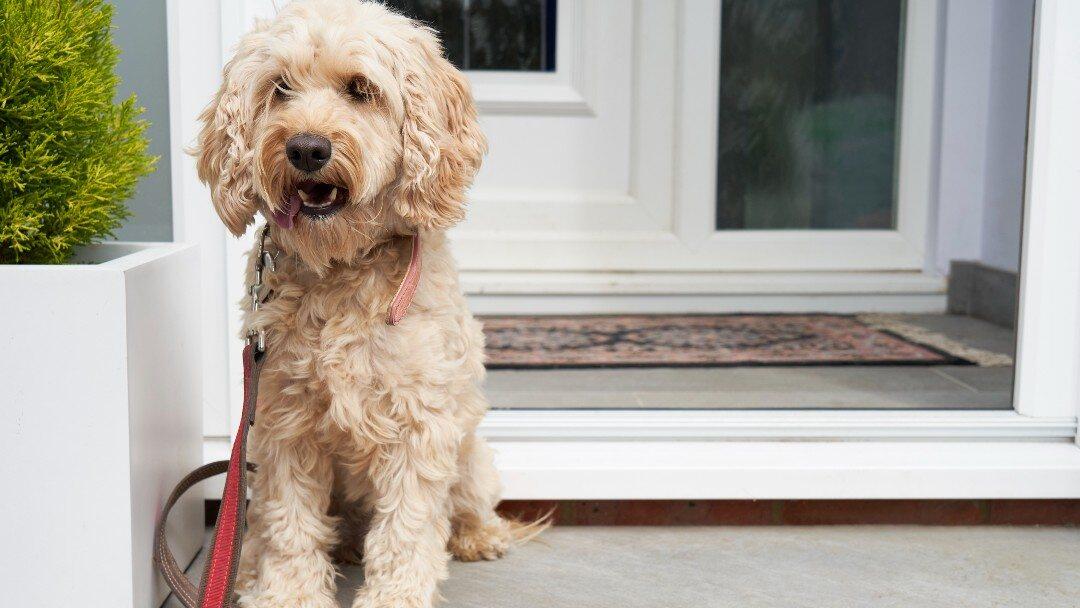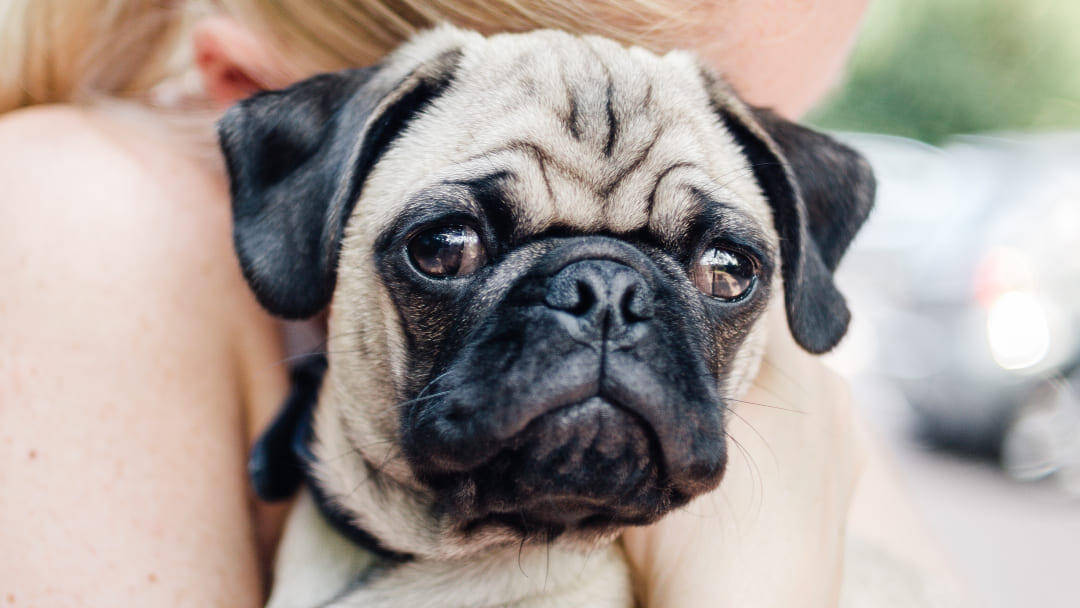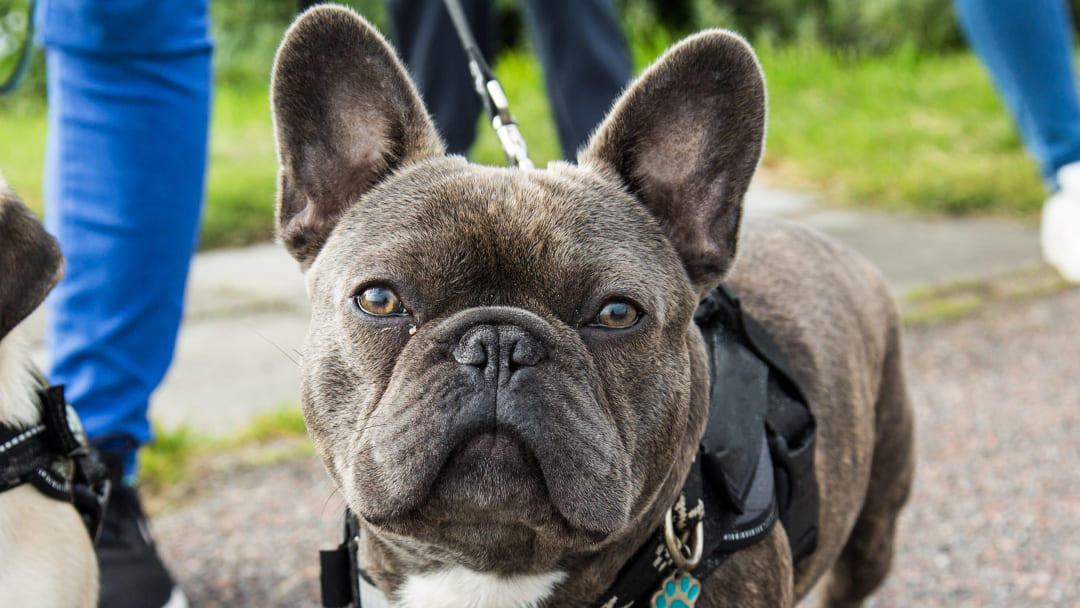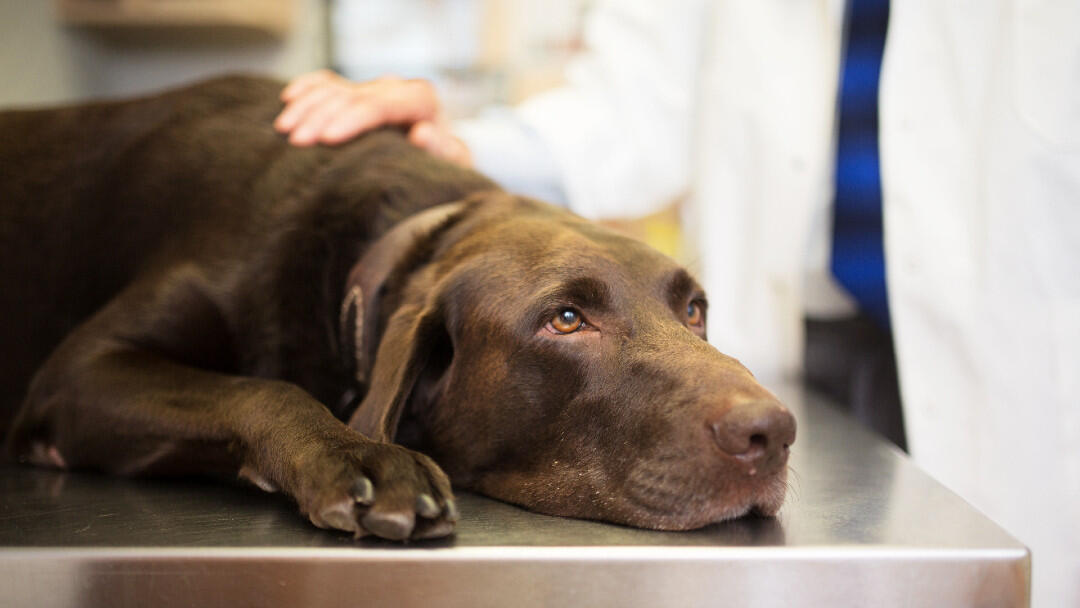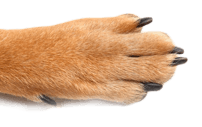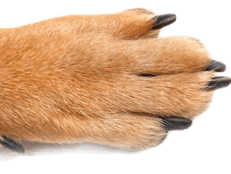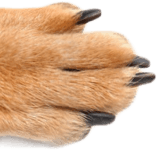6 Common Health Problems in Dachshunds that Every Owner Needs to Know About



Anyone who’s ever owned a Dachshund can vouch for their lovely personality, playful spirit, and soulful eyes that you can’t help but get lost in. They might show their owners their stubborn side from time to time but all in all, they’re a lovely companion you’ll adore straight away. If you have a Dachshund in your life already, it’s only natural to wonder what to expect. Luckily, we’ve prepared a handy list of possible health issues and easily identifiable signs affecting Dachshunds. New owners can use this to help them navigate life with these dogs.
Dachshund health problems all owners should know about
Intervertebral disc disease (IVDD)
Back problems are one of the most common health issues in Dachshunds. Because of their short legs, their backs are a lot more fragile than in other breeds and sometimes even something as uneventful as stepping the wrong way can make their back hurt.
If you notice your Dachshund limping, having accidents all of a sudden, or refusing treats, these might be signs of IVDD and so you should take your dog to the vet to rule out this condition.
Hip dysplasia
Abnormalities in the hip joint can also affect Dachshunds. Although larger dog breeds are more prone to this condition, Dachshund puppies are sometimes born with this genetic condition too. Most owners will notice unusual symptoms before the puppy’s first birthday. These might include limping, stiffness, and atrophied thigh muscles which could all point to hip dysplasia. Fortunately, there are many ways to manage hip dysplasia in dogs, including physical therapy, anti-inflammatory medication, maintaining a healthy weight, and in some cases, surgery.
Patella luxation
Patella luxation is another health problem in Dachshunds that manifests as limping. This happens when the kneecap pops out of its groove. Depending on the severity of the dislocation, the vet will diagnose your pet with one of four levels of patella luxation. Grade 1 is the mildest form of this condition while grade 4 is reserved for cases when the dislocation is permanent, and surgery is the best option.
Obesity
Obesity can affect any dog, no matter their breed. But in the case of Dachshunds, owners should be doubly vigilant of potential extra pounds. The small legs of these dogs cannot support too much extra weight. This could lead to or exacerbate the back issues they’re already prone to. So, make sure you don’t spoil your goofball with too many treats and keep them well exercised to avoid weight problems. However, keep in mind that obesity can also be a symptom of an underlying disease such as hypothyroidism. A thorough check-up at the vet will be able to solve the mystery of any extra pounds.
Eye problems
Dachshund health issues can also affect their eyes. The one to be especially aware of is progressive retinal atrophy. This is a hereditary condition which leads to blindness in most dogs carrying the genes for it.
Dry eyes and cataracts might also cause you to contact your vet’s office, but these conditions can be more easily managed. If your dog’s eyes look cloudy or if your dog has started avoiding dark places all of a sudden, it’s always best to get them checked out. The sooner eye problems in dogs are discovered and diagnosed, the easier it will be for your pet to make a full recovery.
Seizures
One of the more worrying health problems in Dachshunds are dog seizures. It can be difficult for owners to see their dog go through an epileptic seizure, but the best thing to do is to make sure they’re not hitting their head against hard surfaces during the episode and to call the vet immediately afterwards. If your pup has been diagnosed with epilepsy, you should know that medication can help them lead a normal life. Seizures can also be symptoms of other serious conditions such as liver disease or kidney failure, so it’s important to visit your vet for a thorough investigation.
Dachshunds are character-full dogs and no doubt you’ll instantly fall in love with these adorable little creatures. Although they can have many health problems, these are impossible to predict and shouldn’t make fans of these dogs reluctant to welcome them into the family. As long as owners take time to find a responsible breeder who health tests their dogs and prioritises health, and then are aware that, Dachshunds are prone to certain health issues, and so keep an eye out for any unusual symptoms and get in touch with their vet as soon as possible.
If you’re the new owner of a Dachshund, you’re probably looking for the best possible name for your new best friend. So, here’s a selection of some gorgeous names for little dogs to give you some inspiration.

Related articles



